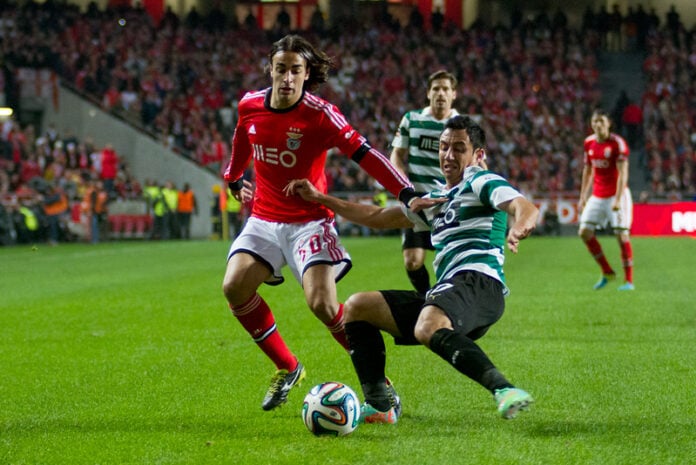In the annals of Portuguese football, no rivalry captures the imagination quite like the clashes between Sport Lisboa e Benfica (commonly known as Benfica) and Sporting Clube de Portugal (known as Sporting). This historic rivalry, known as the Derby de Lisboa, transcends the sport, becoming a cultural phenomenon deeply intertwined with the identity of Lisbon and Portugal as a whole. It is a tale of two footballing institutions, two fiercely loyal fanbases, and a century-long narrative filled with dramatic matches, legendary players, and unforgettable moments.
Fans who have followed this rivalry closely for decades have witnessed how this derby has evolved, how its intensity has grown, and how it remains as passionate as ever. To truly understand Benfica and Sporting, we must first delve into their histories, explore their traditions, and appreciate the countless moments that have defined them.
The Foundations – Benfica and Sporting
Sport Lisboa e Benfica (Benfica)
Founded on February 28, 1904, Benfica was born out of the desire of a group of football enthusiasts to create a club that embodied the working-class spirit of Lisbon. Originally named “Sport Lisboa,” it merged with Grupo Sport Benfica in 1908, adopting the name that we now know.
From its inception, Benfica established itself as a club for the people—rooted in the neighborhoods of Lisbon where blue-collar workers worked hard for their families. The club quickly rose through the ranks of Portuguese football, winning its first national championship in 1936. Over the years, Benfica became synonymous with success, particularly during its golden era in the 1960s, when the club, under the legendary coach Béla Guttmann, won two consecutive European Cups (1961 and 1962).
The Eagles, as they are known, have amassed a staggering number of domestic trophies, including a record 38 Primeira Liga titles and 26 Taça de Portugal victories. Their iconic red jerseys and eagle emblem are a symbol of pride for their supporters, who are known as the Benfiquistas.
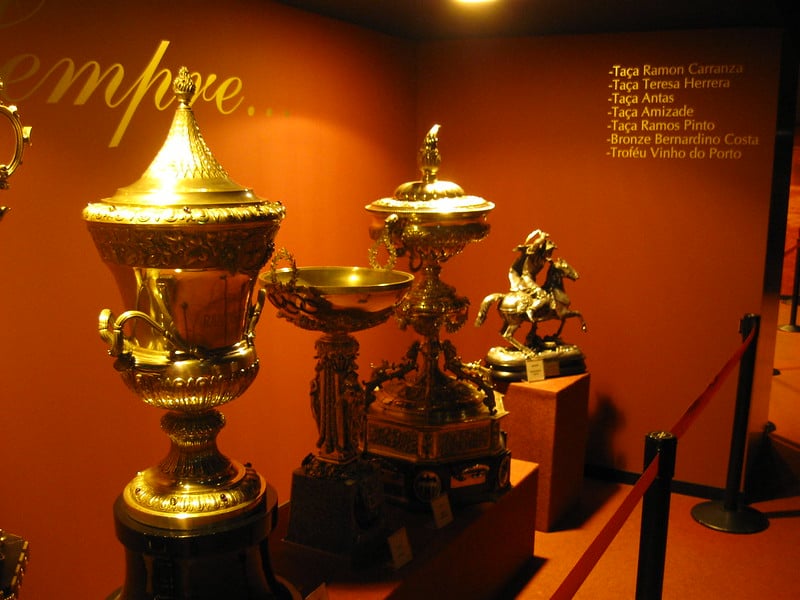
Sporting Clube de Portugal (Sporting)
Founded earlier than Benfica on July 1, 1906, Sporting’s origin is different but equally rich in tradition. Created by a group of aristocrats led by José Alvalade, Sporting was originally intended to be a multi-sport club. Even today, the club excels in various sports beyond football, from athletics to handball, embodying the philosophy that Sporting is more than just a football team—it is a symbol of Lisbon’s upper class, its elegance, and its versatility.
In football, Sporting established itself as a force in the 1940s and 1950s, led by a legendary forward line known as the “Five Violins” (Cinco Violinos). Players like Fernando Peyroteo, José Travassos, Albano Pereira, Jesus Correia, and Manuel Vasques combined to form one of the deadliest attacks in European football at the time. Sporting won seven Primeira Liga titles in the 1940s and 1950s, cementing its status as one of Portugal’s premier footballing institutions.
Sporting’s history is marked by 19 Primeira Liga titles and 17 Taça de Portugal wins. Despite not enjoying the same level of consistent success as Benfica in recent decades, Sporting remains one of Portugal’s “Big Three” clubs, alongside Benfica and FC Porto. Their fans, known as the Sportinguistas, are fiercely loyal to the club’s green-and-white stripes and its emblematic lion.
The Rivalry – Derby de Lisboa
The rivalry between Benfica and Sporting is a battle of ideologies, social classes, and neighborhoods. Sporting, with its origins in aristocracy and nobility, represents the Lisbon elite. Benfica, on the other hand, stands as the club of the working class, the people, and the densely populated districts of the city.
This rivalry has been heated since the first competitive match between the two in 1907, which Sporting won 2-1. Over the years, both clubs have engaged in some of the most thrilling matches in Portuguese football history. The Derby de Lisboa is an event where the entire city, and often the entire country, holds its breath.
The two clubs have faced each other over 300 times in official competitions, with both teams claiming famous victories. Some of the most memorable matches in this rivalry include Benfica’s 4-3 comeback win in 1972 and Sporting’s 7-1 thrashing of Benfica in 1986, still regarded as one of the most humiliating defeats in Benfica’s history.
The Stadiums – Estádio da Luz vs. Estádio José Alvalade
Estádio da Luz (Benfica)
Benfica’s home ground, the Estádio da Luz (Stadium of Light), is an iconic venue for both Portuguese football and European football as a whole. The current version of the stadium, inaugurated in 2003, replaced the original Estádio da Luz, which had stood since 1954. The new stadium was built for the 2004 European Championship, and with a capacity of over 64,000, it remains one of the largest and most impressive stadiums in Europe.
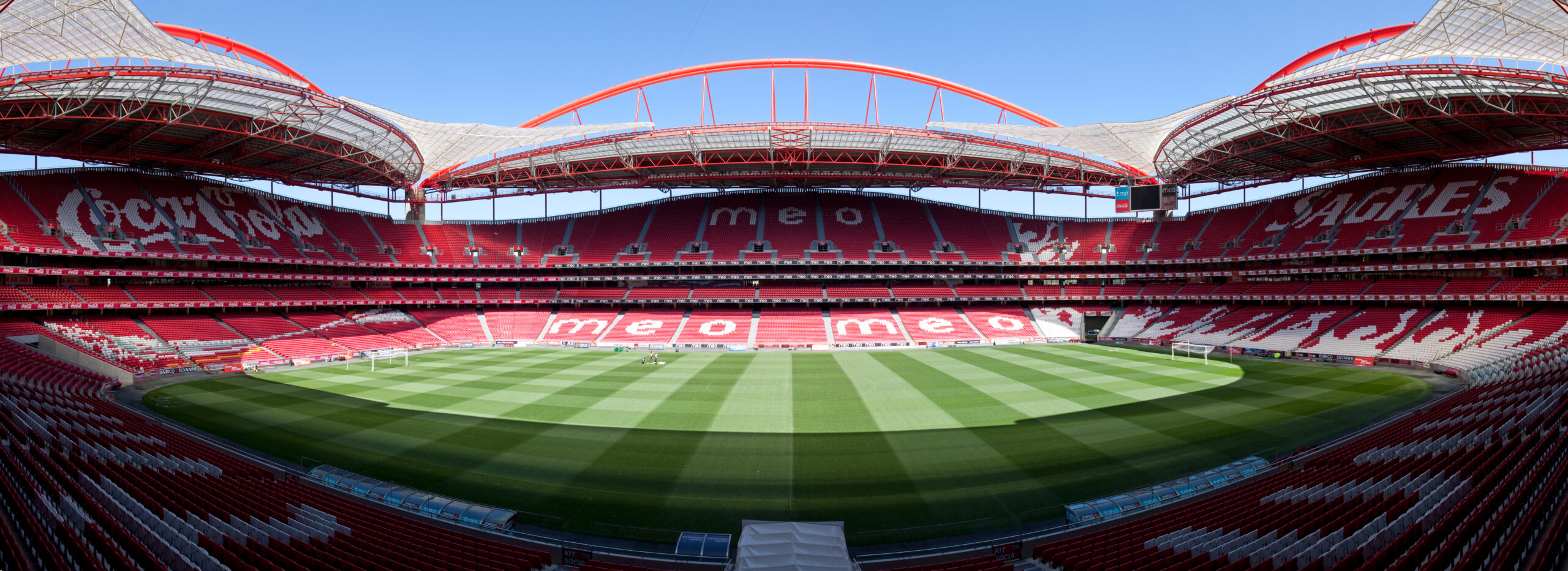
The Benfiquistas have created a unique atmosphere at Estádio da Luz, particularly during big matches. One of the most well-known traditions is the release of a live eagle, named Vitória, before each home match. The eagle, a symbol of Benfica, flies around the stadium before perching on the club’s emblem, signifying strength and triumph. The sight of Vitória soaring above the packed stands sends chills down the spine of any football fan.
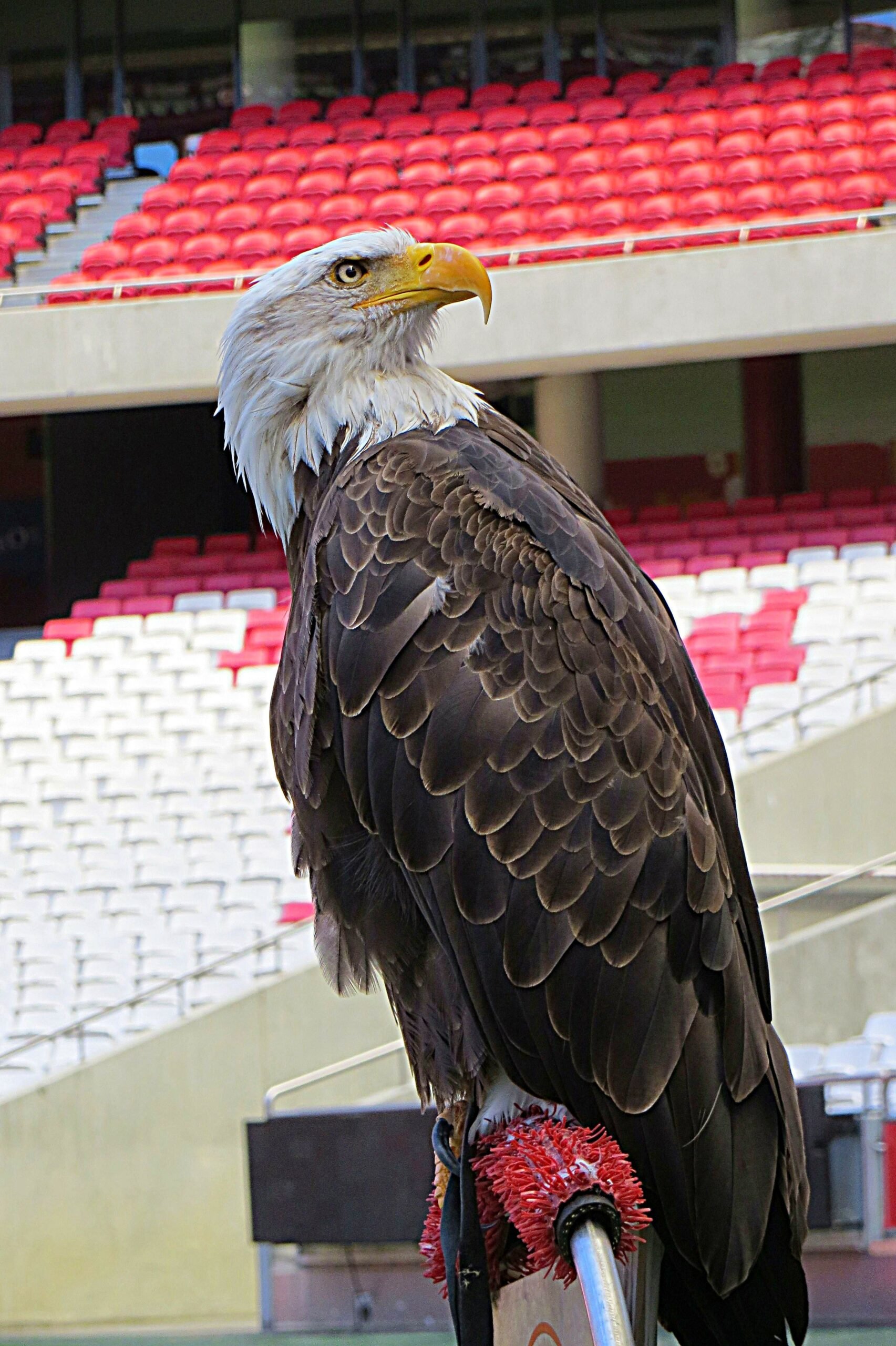
Estádio José Alvalade (Sporting)
Sporting’s home stadium, the Estádio José Alvalade, is also a modern marvel. Inaugurated in 2003 to replace the original stadium built in 1956, it has a capacity of around 50,000 and is named after the club’s founder, José Alvalade. The stadium is known for its vibrant green and white color scheme, which reflects the club’s traditional colors.
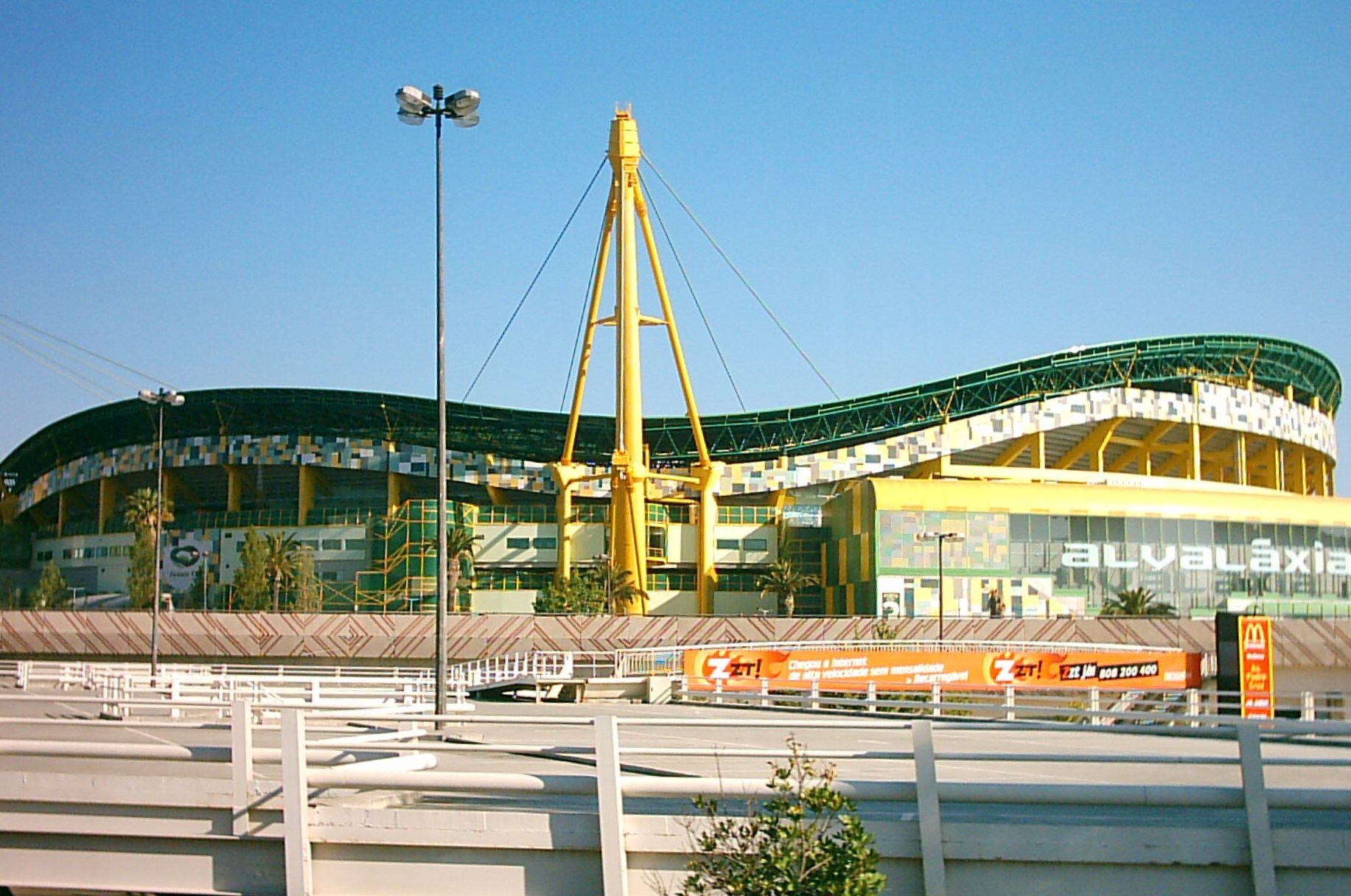
The Sportinguistas are renowned for their unwavering support, and the atmosphere at the José Alvalade is electrifying, especially during derby matches. One of Sporting’s unique traditions is the chant of “O Mundo Sabe Que” (The World Knows), which echoes around the stadium as thousands of fans sing in unison before every match. This passionate anthem encapsulates the pride that Sporting fans have in their club and its history.
Legends of Benfica and Sporting
Benfica’s Greatest Players
Over the years, Benfica has produced and attracted some of the greatest footballers in history. Eusebio, undoubtedly the most famous, is regarded as one of the finest players to ever grace the game. Known as the “Black Panther,” Eusebio’s lightning pace, powerful shot, and goal-scoring prowess made him a global icon during the 1960s. He helped Benfica win 11 league titles and was instrumental in their European success.
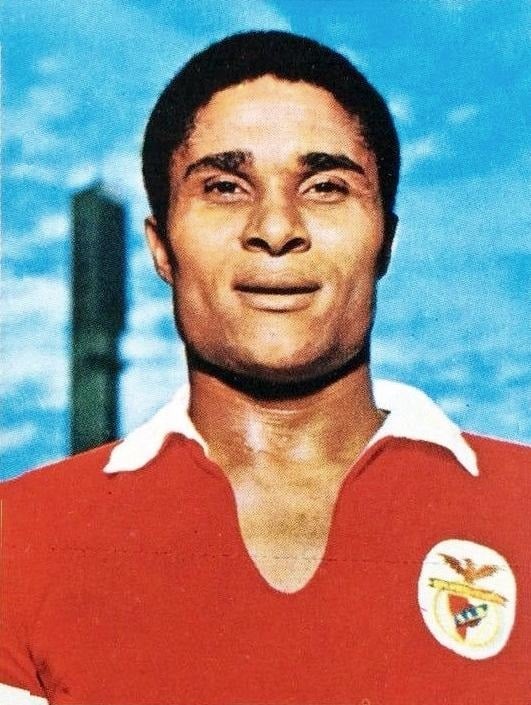
Another legendary figure in Benfica’s history is Mário Coluna, a midfielder who captained the team during its European triumphs. His leadership and technical ability made him a cornerstone of Benfica’s golden era.
In more recent years, Rui Costa, a product of Benfica’s famed youth academy, returned to the club after a stellar career in Italy. Known for his vision and passing ability, Rui Costa remains a symbol of loyalty and class in Benfica’s history. Additionally, players like Nené, Fernando Chalana, and Jonas have left indelible marks on the club’s illustrious history.
Sporting’s Greatest Players
Sporting has also had its fair share of legendary players. Perhaps the most iconic figure in Sporting’s history is Cristiano Ronaldo, who began his professional career at the club before moving to Manchester United in 2003. Although Ronaldo’s time at Sporting was brief, his development at the club laid the foundation for his future superstardom.

Sporting’s golden era in the 1940s and 1950s was dominated by the “Five Violins,” a group of forwards who are still revered to this day. Fernando Peyroteo, often considered the best Portuguese striker of all time, scored an incredible 331 goals in 187 matches for Sporting, a record that stands as a testament to his brilliance.
In more recent years, players like Luís Figo, Ricardo Quaresma, and João Moutinho have made significant contributions to Sporting’s legacy. Figo, in particular, is remembered not only for his time at Sporting but also for his glittering career with Barcelona and Real Madrid.
The Fans: Passion and Tradition
The rivalry between Benfica and Sporting is not just played out on the pitch—it is reflected in the passionate support of their fans. The Benfiquistas and Sportinguistas each have their own unique traditions, but what unites them is their deep love for their respective clubs.
Benfica’s fanbase is known for its size and intensity. The club claims to have the largest number of registered supporters in the world, a testament to its broad appeal. On match days, the Benfiquistas pack the Estádio da Luz, creating a wall of red that intimidates opponents and inspires their team. The fans are known for their unrelenting support, even in difficult times, and the chants of “SLB, SLB, SLB!” reverberate throughout the stadium.
Sporting’s fans, while perhaps fewer in number, are no less passionate. The Sportinguistas are known for their unwavering loyalty, even during the club’s lean years. The Juventude Leonina, Sporting’s oldest ultra group, has been a constant presence in the stands since 1976, leading the chants and creating an electric atmosphere at the José Alvalade.
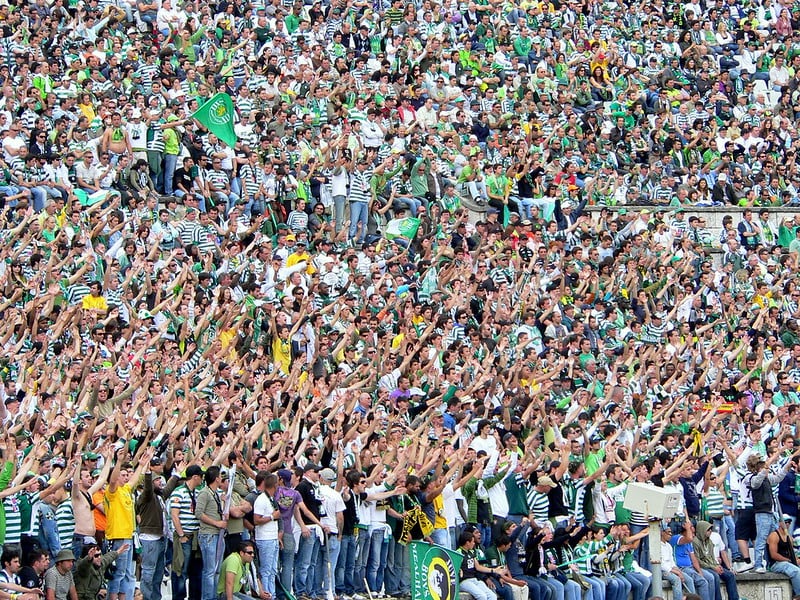
The chant of “Eu Sou Sporting” (I Am Sporting) is a declaration of identity, a reminder that being a Sportinguista is not just about supporting a football club—it is a way of life.
When Can I Watch a Game?
If you’re eager to witness the legendary rivalry between Benfica and Sporting, or simply want to catch a Portuguese football match, understanding the schedule of the Primeira Liga and other key competitions is essential.
Primeira Liga: The Regular Season
The Portuguese football season, including the Primeira Liga (Portugal’s top-tier football division), typically runs from August to May. Each club in the league plays a total of 34 matches—home and away—over the course of the season. Benfica and Sporting, being two of the top clubs in the league, are frequently involved in some of the most exciting and competitive fixtures each year.
Primeira Liga fixtures are usually scheduled on weekends, with some matches taking place on Friday or Monday evenings. This allows fans to enjoy a full weekend of Portuguese football with many matches airing in prime-time slots.
The exact time of each match can vary but is typically in the evening or late afternoon especially when it comes to the more high-profile fixtures like the Lisbon derby. The matches between Benfica and Sporting in the Primeira Liga are always highly anticipated, with the first derby of the season usually occurring in the fall or winter, around November or December, depending on the schedule. The reverse fixture, with the home advantage switching between the two teams, usually happens in the spring, around April or May, and can often be decisive in determining the league champion, especially if both clubs are in title contention.
Taça de Portugal and Taça da Liga
In addition to the league, both clubs also participate in the Taça de Portugal (Portuguese Cup) and the Taça da Liga (League Cup). These knockout competitions provide additional opportunities for Benfica and Sporting to face each other, often resulting in intense cup clashes. The Taça de Portugal final, which takes place in May, is one of the most prestigious events in Portuguese football, and Benfica or Sporting often have a strong chance of featuring in the final stages of this tournament.
The Taça da Liga, which has its final in January, is a shorter competition, and matches take place during the league season, often adding another layer of drama to the campaign. Fans can look forward to these cup matches in addition to the regular Primeira Liga encounters.
European Competitions
Both Benfica and Sporting regularly compete in European competitions, such as the UEFA Champions League and the UEFA Europa League. Matches in these prestigious tournaments usually take place midweek, typically on Tuesdays or Wednesdays for the Champions League and Thursdays for the Europa League.
While these competitions do not usually involve domestic rivalries, unless the teams happen to meet in a rare European draw, they offer an opportunity to see the two clubs compete against Europe’s elite. Watching Benfica or Sporting play in Europe is an excellent way to experience the intensity and quality of Portuguese football on an international stage.
Benfica vs. Sporting: How Often Do They Play?
The most anticipated clash between Benfica and Sporting—the Lisbon Derby—takes place twice a season in the Primeira Liga. These matches are must-watch events, typically scheduled once in each half of the league season. The first derby is held at one of the clubs’ home stadiums, while the second fixture is at the rival’s ground.
– First Lisbon Derby – Generally held in the first half of the season, around November or December.
– Second Lisbon Derby – Played in the second half of the season, around April or May.
On rare occasions, Benfica and Sporting may face each other more than twice in a season if they are drawn together in cup competitions like the Taça de Portugal or the Taça da Liga. This can lead to extra derbies, adding to the drama and excitement of the football calendar.
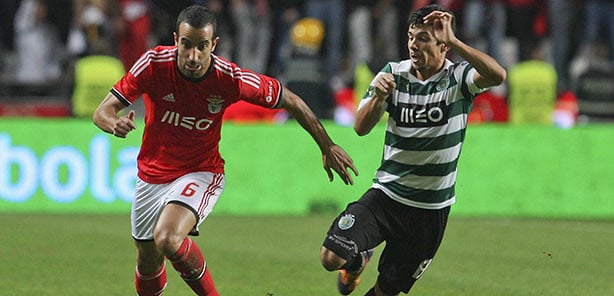
Where to Watch Benfica vs. Sporting and Other Portuguese Matches
For fans wanting to catch Benfica, Sporting, or any Portuguese football match, there are several platforms and avenues to explore:
1. Portuguese Broadcasters
The Primeira Liga is broadcast live on Sport TV, the leading sports channel in Portugal. Major derbies, including Benfica vs. Sporting, are covered extensively, with pre-match analysis and post-match discussions.
2. International Broadcasting
Outside of Portugal, many international broadcasters air Primeira Liga matches, especially games involving the “Big Three” (Benfica, Sporting, and FC Porto). In countries such as the UK, the US, and across Europe, channels like BT Sport, ESPN, Fox Sports, and beIN Sports often have broadcasting rights.
Additionally, matches are frequently available via online streaming services, which offer live coverage and highlights.
3. Streaming Platforms
For international fans, there are several online streaming services that carry Portuguese football, such as FuboTV, DAZN, and Sling TV. These services often provide comprehensive coverage of both the Primeira Liga and European competitions.
In Portugal, Sport TV, and BTV (Benfica’s official television channel) also offer live streams of Benfica’s matches. Sporting has a similar service with Sporting TV.
4. Attending the Matches
If you’re lucky enough to be in Lisbon during the football season, attending a match at either the Estádio da Luz (Benfica) or the Estádio José Alvalade (Sporting) is an unforgettable experience. Both stadiums offer online ticket sales through their official websites, and tickets for the Lisbon Derby are typically in high demand, often selling out quickly. It’s advisable to plan well in advance to secure your spot for these iconic encounters.
Special Matches and Events
In addition to regular-season fixtures, Benfica and Sporting often participate in pre-season friendlies or international summer tournaments. While these matches do not carry the same weight as official competitions, they are still a great way to watch the two teams in action and get a taste of the rivalry before the season begins.
These matches often occur in July or early August, as clubs prepare for the new season, and are held either in Portugal or abroad, sometimes in countries with large Portuguese communities like the United States or Canada.
Plan Your Football Calendar
For fans of Portuguese football, or for those new to the sport, watching Benfica and Sporting compete—especially in the Lisbon Derby—is a thrilling experience. With the season running from August to May, there are plenty of opportunities to catch these two iconic clubs in action.
Whether you tune in for the Primeira Liga, the cup competitions, or European matches, Benfica and Sporting consistently deliver high-quality football and passion. The derby fixtures, played at least twice a season, are unmissable, but both teams also offer engaging football throughout the campaign, providing fans with numerous chances to immerse themselves in Portuguese football culture.
In Conclusion
The rivalry between Benfica and Sporting is a reflection of Lisbon’s social fabric, a clash of ideologies, and a celebration of Portuguese football. From the golden eras of both clubs to the modern-day battles for supremacy, the Derby de Lisboa continues to captivate fans and ignite passions.
I can say with confidence that there is nothing quite like a Benfica vs. Sporting match. The history, the players, the fans, and the traditions all combine to create a spectacle that transcends the sport. Whether you are a Benfiquista or a Sportinguista, or simply a lover of football, this rivalry will continue to be one of the greatest stories in the beautiful game.

